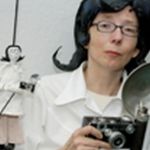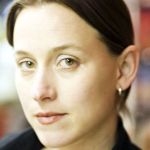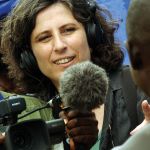Field-Of-Study: Film

Nancy Andrews
Nancy Andrews, a Fellow in filmmaking and faculty member at the College of the Atlantic in Bar Harbor, Maine, has been making unique films for over twenty years. After receiving a B.F.A from the Maryland Institute, College of Art, she joined Emma Elizabeth Downing and Michael Willis to form the performance group Lambs Eat Ivy, which presented such works

Rick Altman
Rick Altman is Professor of Cinema and Comparative Literature at the University of Iowa, where he has taught since 1974. He is an Angier B. Duke Fellow, a Woodrow Wilson Fellow, a Danforth Fellow, a Fulbright Fellow, a Cornell University Society for the Humanities Fellow, a University of Iowa Faculty Scholar, an NEH Fellow, and

Natalia Almada
Natalia Almada has been appointed as a Guggenheim Fellow in filmmaking. As she explained in a narrative account of her career, she uses film as a means to explore "how the past defines who we are today and to create a visual memory that reflects [her] view of the world…[M]aking films is about posing questions."
Peggy Ahwesh
Aptly described as a media bricoleur, Peggy Ahwesh’s work combines a variety of experimental narrative and documentary genres, often with improvisational performance. Utilizing found footage, noise, the arcane, and a variety of obsolete, low-end technologies Ahwesh’s work is primarily an investigation of cultural identity and the role of the female subject. Ahwesh’s practice insists on

Anne Aghion
As a filmmaker, Anne Aghion has been drawn to places as far-ranging as rural Rwanda, the ice fields of Antarctica, and the slums of Managua. She has been praised by critics both as a director of unique and poetic vision, and a documentarian who conveys a strong sense of the people and places she covers.

Richard Abel
Richard Abel earned his Ph.D. in Comparative Literature at the University of Southern California. After many years of teaching in the English Department at Drake University, where he also directed an undergraduate Cultural Studies program (1990-1993) as well as the Center for the Humanities (1996-2000), he came to the University of Michigan in 2002 as